THIS POST MAY CONTAIN AFFILIATE LINKS. PLEASE SEE MY DISCLOSURES. FOR MORE INFORMATION.
It seems like every generation has its own unique set of trends and fads that define it.
From outrageous fashion choices to bizarre pop culture phenomena, there always appears to be some kind of craziness taking over society.
Looking back at the past few decades, you’ll see plenty of outlandish trends that quickly came and went just as quickly as they arrived.
Here are sixteen of the strangest fads that we humans actually thought were cool, at least for a short while!
#1. Planking

This viral craze took the world by storm in 2011, and involved people lying stiff as a board in public places.
Planking was so popular that it even spawned its own spin-off named ‘Owling’, where participants would imitate an owl perched on a tree branch!
#2. Spinning Rims

At the beginning of the 2000s, spinning rims on cars was all the rage.
Not only did they look cool, but they also made it easier for drivers to show off their vehicles’ impressive customization jobs.
#3. Segway

When they debuted, segways were supposed to be the next big thing in personal transportation.
The Segway was a two-wheeled self-balancing scooter that allowed users to move around in a standing position and quickly gained popularity among city-dwellers and tourists who used it to navigate urban areas and explore tourist attractions.
The trend was fueled by media coverage, with numerous celebrities and politicians using the device publicly.
Segways were often associated with luxury and exclusivity, as they were relatively expensive and not widely available.
However, the trend eventually declined, with Segways being criticized for their high cost and limited practical use.
You can still find Segways in certain contexts, such as police and security patrols, but they are no longer a mainstream trend.
#4. Zima

Zima was a popular trend in the mid-1990s when the Coors Brewing Company introduced it as a refreshing alternative to beer.
Marketed as a clear, malt-based beverage, Zima quickly gained a following among young adults looking for a sweet and easy-to-drink alternative to traditional beer.
Clever and memorable advertising campaigns helped increase the popularity of Zima, establishing it as a must-have beverage for anyone who wanted to be considered hip and cool.
#5. Live Strong Bracelets

LiveStrong bracelets were a popular trend in the mid-2000s when the Lance Armstrong Foundation introduced them to raise awareness and funds for cancer research.
The bright yellow bracelets quickly became a symbol of hope, inspiration, and a fashion statement, with millions worldwide wearing them on their wrists.
Celebrities, athletes, and politicians popularized the bracelets, helping to spread the message of the LiveStrong movement and its mission to fight cancer.
Sadly, the movement came to a screeching halt when revelations surfaced that Armstrong used performance-enhancing drugs.
#6. Burning Custom CDs

When Napster and Limewire became mainstream, people needed a way to take all this new music with them.
With iPods not a thing yet, your only option was burning the music onto CDs or CD-Rs. Buying a pack of blank Memorex CDs and burning your favorite songs onto them was relatively cheap.
The issue was knowing what was on each disc. One simply needed a standard Sharpie marker to solve this tricky issue.
#7. Ed Hardy Clothing

Ed Hardy clothes were popular as the UFC and other mixed martial arts became mainstream.
This new type of fashionable streetwear was characterized by its bold and colorful tattoo-inspired designs, often adorned with rhinestones and other embellishments.
Ed Hardy clothes quickly gained popularity among young people, especially men, who were drawn to their unique and edgy style.
The trend was so popular that it expanded into fragrances, suntan lotions, and energy drinks.
#8. Farmville
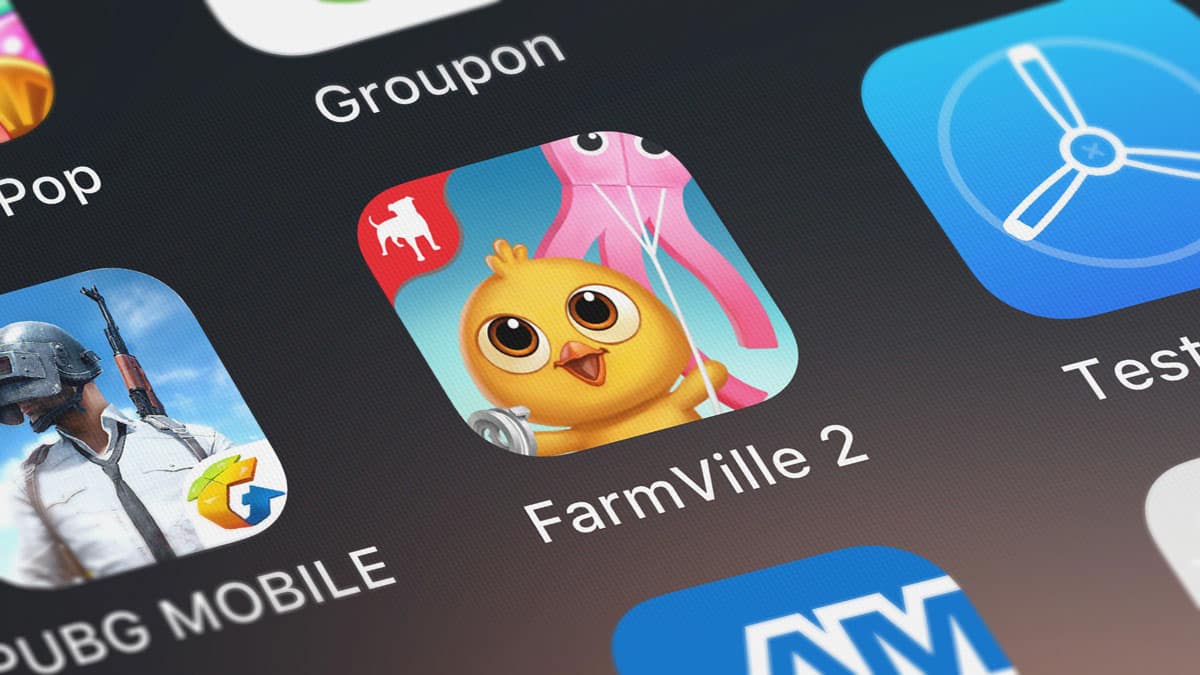
Farmville exploded in popularity in the late 2000s and early 2010s when game developer Zynga debuted the farming simulation game on Facebook.
It quickly became one of the most popular games on the social media platform, with millions of daily active users drawn to its addictive gameplay, colorful graphics, and social features.
Farmville allowed players to create and manage virtual farms, plant and harvest crops, raise livestock, and interact with other players in a virtual world.
The game’s popularity was partly fueled by its viral nature, as players were encouraged to invite their friends to join them in the fun and help each other with their virtual farms.
While Farmville’s popularity has waned in recent years, it remains a landmark trend in social gaming history, paving the way for a new generation of social games that are now ubiquitous on mobile devices and other platforms.
#9. Pogs

Anyone growing up in the 90s knows about pogs.
Pogs, or milk caps, were a popular trend in the 1990s as a new type of collectible game.
The game involved stacking small, round cardboard discs with various designs and patterns, then using a larger disc to slam them down and try to flip them over.
Pogs quickly gained popularity among children and teenagers, who enjoyed collecting and trading the discs with friends.
The trend grew with the introduction of licensed pogs featuring popular characters from movies, TV shows, and video games, which further increased their appeal.
Pogs became so popular that some schools banned them due to concerns about their potential for causing disruption and distraction.
#10. Water Beds

Water beds were a popular trend in the 1970s and 1980s as a new and exciting bed type.
The beds were water-filled mattresses that offered a unique and comfortable sleeping experience. They quickly became popular among young adults and were associated with a free-spirited and adventurous lifestyle.
Water beds were often seen as a symbol of the counterculture movement and popularized in films, television shows, and advertisements.
Despite their decline in popularity, water beds continue to be sold and used by a loyal group of fans who appreciate their unique sleeping experience.
#11. AOL Chatrooms

AOL chatrooms were popular in the late 1990s as online communication became mainstream.
The chatrooms allowed users to join virtual rooms based on specific interests or topics and engage in real-time conversations with others from around the world.
Young people were the driver of AOL chatrooms, as they could connect with others who shared their interests and hobbies.
The growth of the internet, which allowed for a new level of global connectivity and communication, pushed chatrooms further into the mainstream.
Eventually, the novelty wore out as other social media platforms took shape and offered better engagement methods.
#12. Flash Mobs
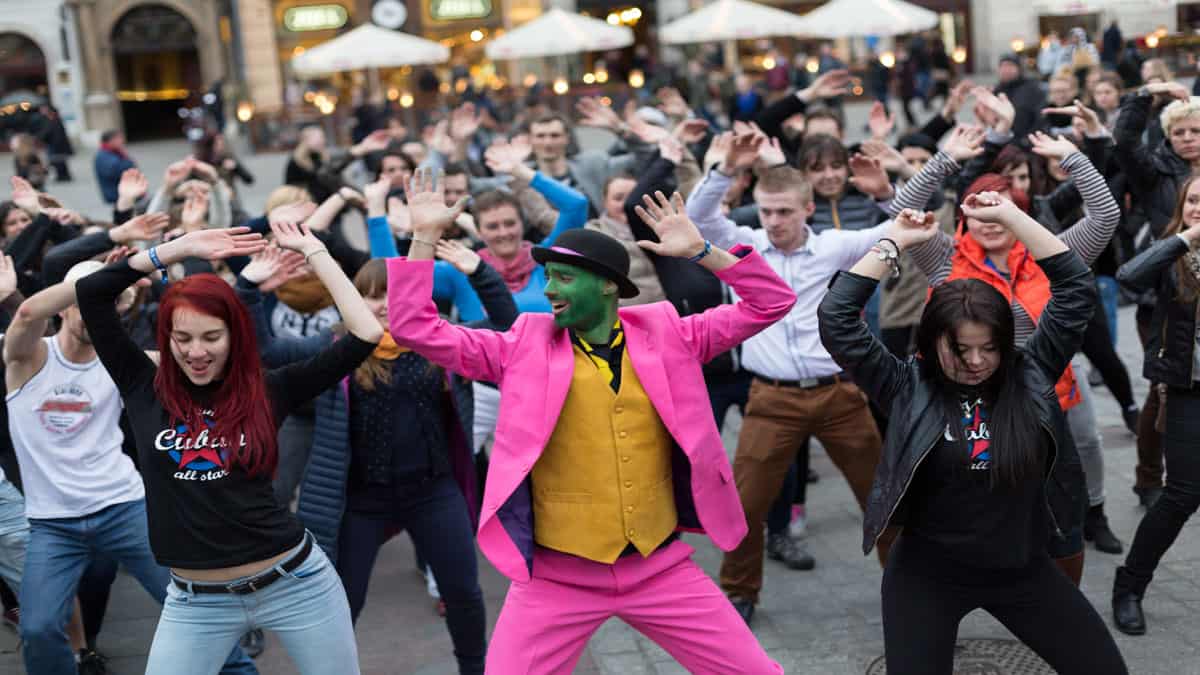
Flash mobs were all the rage in the 2000s as a new type of spontaneous performance art.
The idea was simple: a group would gather in a public space and perform a coordinated, unexpected dance or performance before quickly dispersing. Flash mobs rapidly gained popularity among young people, who enjoyed the element of surprise and the feeling of being part of a spontaneous creative movement.
Social media further fueled the trend, which allowed for the organization and coordination of flash mobs on a larger scale.
Videos of flash mobs quickly went viral online, further increasing their popularity and inspiring others to create their own.
Flash mobs were a common way to raise awareness for social causes, such as environmentalism or charity fundraising, and were seen as a new and innovative way to engage with audiences in public spaces.
#13. Tattoo On Lower Back

Tattoos on the lower back, or tramp stamps, because young women were most likely to have them, were popular in the early 2000s.
The trend gained popularity partly due to the increasing acceptance of tattoos as a form of self-expression and body art. It was often associated with a sense of rebellion and sexual freedom, as they were seen as a way to subvert traditional gender norms.
However, the trend also faced criticism, with many people accusing those who wore tramp stamps of promiscuity or lacking taste.
Despite the controversy, the trend persisted, with many celebrities and public figures sporting tattoos.
#14. Beepers
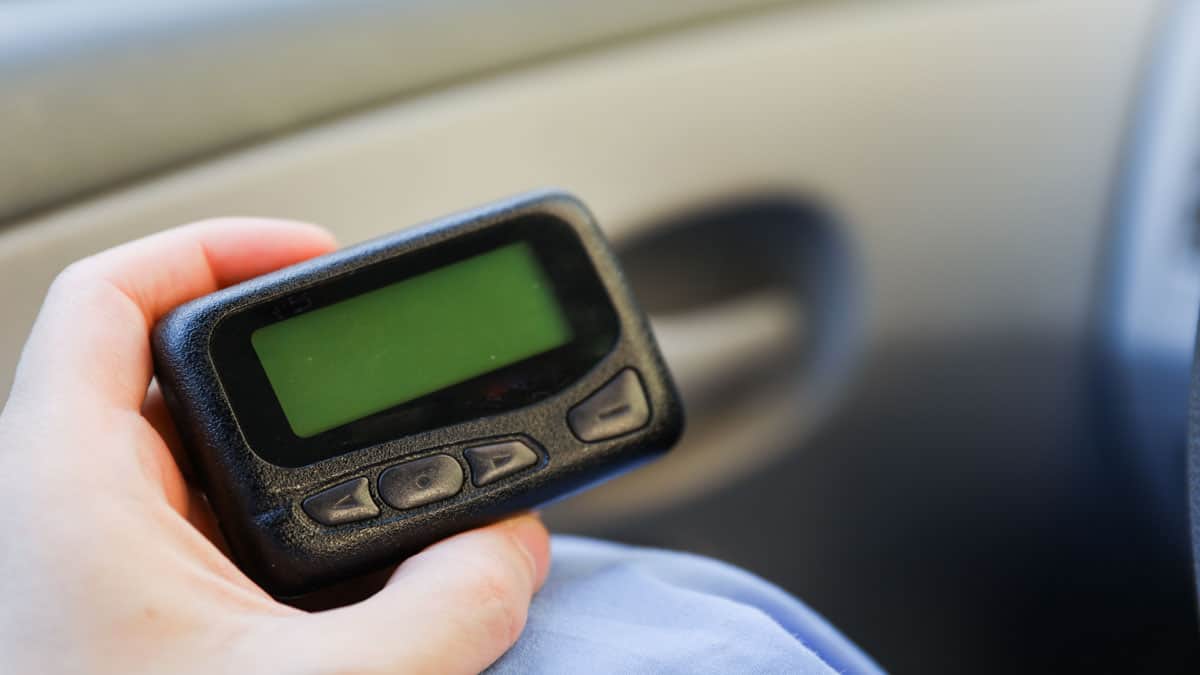
Beepers, also known as pagers, were a must-have in the 1990s when they were introduced as a new way to stay connected with others.
The devices were small and portable, allowing users to receive text messages and phone numbers from others. Many professionals and people on the go, who needed to stay connected to their work and personal lives, were the driving force behind the item.
Beepers were also popular among young people, who used them to communicate with their friends without their parents knowing.
As the technology evolved, cell phones were a natural replacement for these devices.
#15. Personalized Ring Tones

Personalized ringtones were the buzz as more and more people began using mobile phones and looked for ways to customize their devices.
With personalized ring tones, users could choose a specific song or sound to play when they received a phone call instead of the standard ring tone provided by the phone.
The trend quickly gained popularity, with many people using their favorite songs or sound effects as their personalized ringtones.
As digital music became more available and transferring files to mobile phones became more straightforward, people began customizing their ringtones more.
#16. Power Balance Bands

In the early 2000s, a surge of interest in fitness and wellness swept the nation.
Suddenly, everyone was looking for the secret to staying healthy and balanced, both physically and mentally. And that’s where power balance bands came in.
This simple, unassuming wristband promised to unlock a new level of vitality and strength.
People were drawn to the sleek design and minimalist look of the bands, but it was the supposed benefits that really hooked them.
By harnessing the power of holographic technology, power balance bands claimed to improve balance, flexibility, and overall well-being.
And while the exact science behind these claims may have been dubious at best, there’s no denying that in the 2000s, power balance bands were the must-have accessory for anyone looking to achieve optimal health and peak performance.
#17. Fidget Spinners
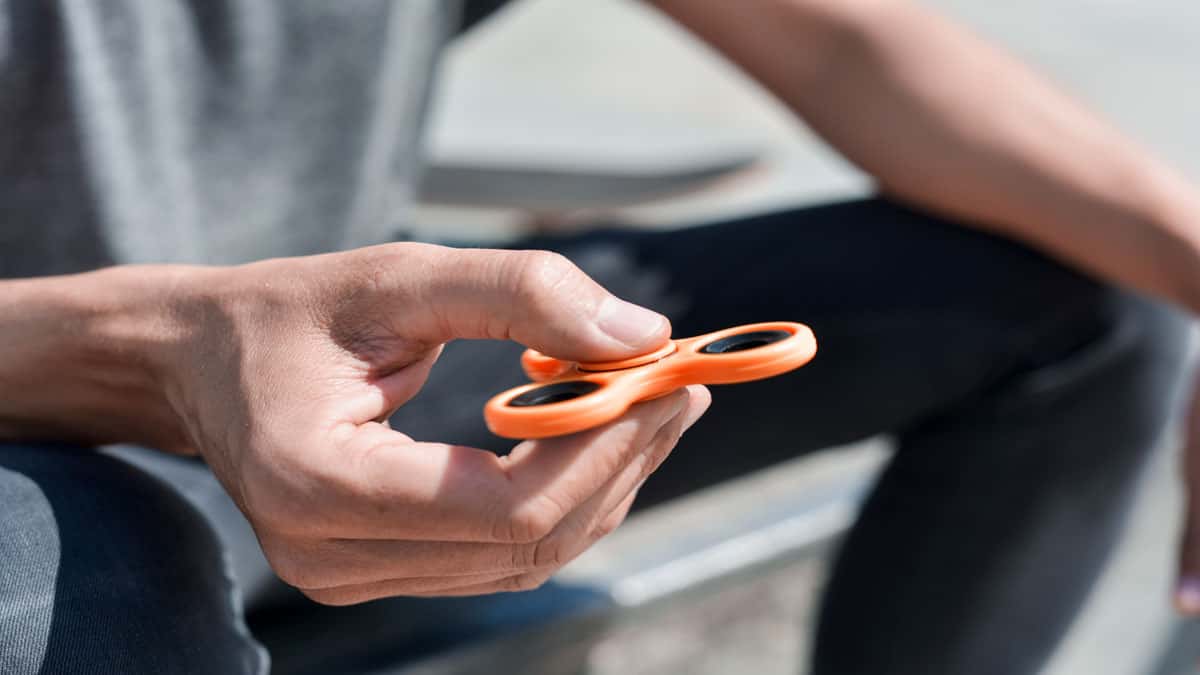
Fidget spinners were popular in the late 2010s as a handheld toy designed to help people reduce stress and anxiety.
The toys consisted of a small ball-bearing device that could be spun between the fingers, providing a satisfying sensory experience.
Fidget spinners quickly gained popularity among children and teenagers drawn to their bright colors and simple design. The toys also became popular among adults, who used them as a stress-relieving tool in the workplace and at home.
The trend was fueled by social media, with viral videos and images of people performing tricks and stunts with fidget spinners quickly spreading across platforms like Instagram and YouTube.
As with most fads, fidget spinners slowly lost their luster. It didn’t help that many schools began to ban the toy as student injuries increased when trying to perform tricks.
#18. MySpace

MySpace was one of the most popular trends in the early days of social media. Launched in the early 2000s, it quickly gained popularity among teenagers and young adults looking for a platform to connect with their friends online.
MySpace allowed users to create personal profiles, customize them with various backgrounds, music, and other widgets, and connect with other users through messaging, comments, and public forums.
At its peak, MySpace had over 100 million registered users and was the most visited website in the United States.
Fun Money Facts

Did you know there are places you can pay for things using a special local currency? Do you know why some coins have ridges on the sides? Discover over 60 fun money facts that you didn’t know.
61 FUN MONEY FACTS YOU DIDN’T KNOW
Rare Dollar Bills And Coins

Most people think the money in their wallet is worth face amount. But many bills and coins with printing errors are worth a lot of money. While some of these coins and bills are rare, in other cases, you very well could have a small fortune and not even know it.
25 RARE DOLLAR BILLS AND COINS WORTH THOUSANDS
15 Gas Hacks For Free Gas
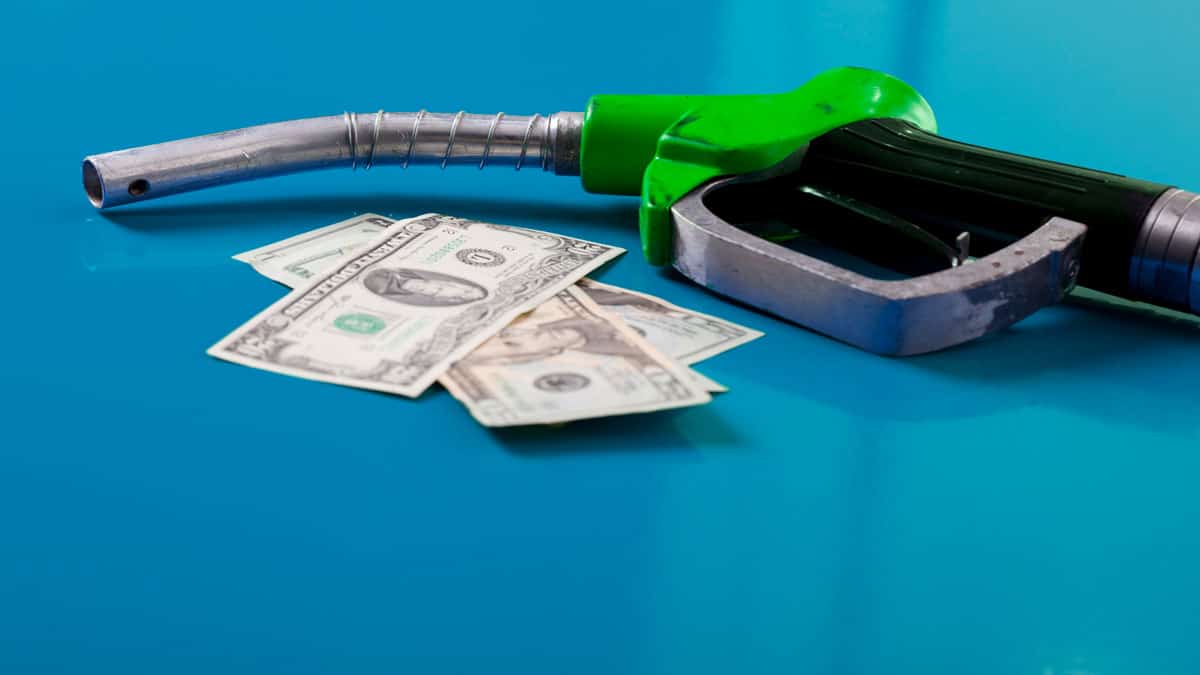
You’ve probably wished you could get free gasoline, but thought that was impossible. But the reality is, it isn’t impossible.
There are many free gas hacks you can use to save money on fuel ups. Here are 15 ways to lower the cost of gasoline, and in effect, get free gas.
15 FREE GAS HACKS YOU NEED TO TRY
47 Ways To Get Free Gift Cards

Nowadays, people are looking for every means possible to make extra cash. One unique idea is to get free gift cards. Gift cards are a great way to help pay for the things you need without spending any money.
You can earn free gift cards for completing simple tasks in many ways. This includes getting paid for simple online tasks like playing games, completing surveys, and shopping.
Here is a complete guide on how to get free gift cards so you can spend less money on the things you buy.
47 PROVEN WAYS TO GET FREE GIFT CARDS
Make Money While You Sleep

Yes, you can make money while you sleep. There are a handful of jobs out there that will earn you an income even after you stop working for the day.
The trick is finding the right one for you.
HOW TO MAKE MONEY WHILE YOU SLEEP
This thread inspired this article.
I have over 15 years experience in the financial services industry and 20 years investing in the stock market. I have both my undergrad and graduate degrees in Finance, and am FINRA Series 65 licensed and have a Certificate in Financial Planning.
Visit my About Me page to learn more about me and why I am your trusted personal finance expert.

